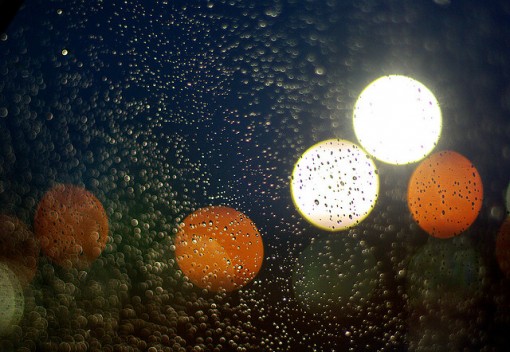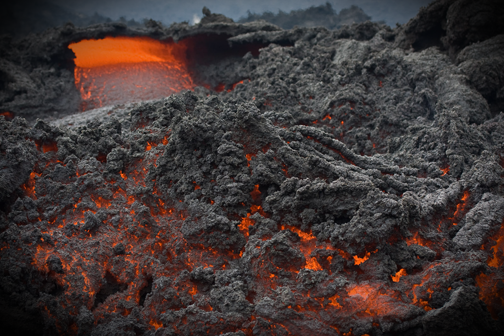Megan Giddings
His real name was Stanley, but to the world he was MC Hammer. As a boy, he loved baseball. He danced outside the Coliseum before A’s games, gathering a crowd as he pounded his still-growing feet against the pavement. Stanley used his skills, his quick feet, his ability to spin and spin without getting sick to get the crowd to buy him the baseball tickets he could not afford. Inside the coliseum, Stanley knew profound peace as he trash-talked all opposing teams. He shouted on the A’s, pumping his tiny fist with excitement for every hit, every stolen base, every RBI. Stanley wished he could live in the Coliseum, running the bases at night and making a bed in the outfield’s well-maintained grass.
When MC Hammer was discovered, he was at a nightclub in Oakland. He spent most of the night sipping drinks with his entourage: his two barbers, Diamond Mike and Diamond Ken, his friend LaShonda who always told him what to order, and Darryl, an aspiring college baseball player. The DJ was a friend of his and put on his first recording of “Turn this Mutha Out.” The floor filled with people entranced by the bongo beat and the infectious repetitiveness of the chorus. MC Hammer leapt to the floor and led the dance. Everyone was moving from side to side, their feet moving faster than ever before. They spin-clapped and waved their arms in the air. Carol, a record executive at Capitol Records, watched the spectacle with dollar signs ca-chinging in her large, brown eyes.
Even in my small hometown of New Caspian, Michigan, everyone wore hammer pants. In church, we wore our droopiest drop crotch metallics, matching them to chalice, the candlesticks, and the censer. On dates, we wore the neons, the zebra-printed, and the ones with the words “Pow” and “Blamm-o” in cartoon print from ass to ankle to impress potential lovers with our audaciousness. And to job interviews, funerals, and meetings with potential in-laws, we wore the classic black satin with white Reebok sneakers to look somber and dignified
In MC Hammer’s life, everything was joy and light and infectious rhythms. He loved his wife and she loved him in the exact same and equal way. Together they designed a floating palace filled with fountains and secret waterfalls, surrounded by a great moat filled with lily pads and crystal clear water. They filled rooms with mirrors. When the sunlight hit those rooms at the right angle, they were filled with rainbows that MC Hammer called his miracles. In the rainbow moments, he and his wife would go into the rooms to pray and thank God for all their blessings. And when the house was completed, MC Hammer went on tour. At every stop, he gave a homeless man sleeping in the fetus position a new, crisp fifty dollar bill, he gave dancing jobs to women who seemed to sprout left foot after left foot until they became just balls of feet to be pushed across stage while pyrotechnics went off, and there were always old friends waiting for him backstage asking for loan after loan after loan.
When Please Hammer, Don’t Hurt ‘Em came to New Caspian, we shut the city down. We gathered en masse on the steps of the local movie theater, demanding it play on all four screens. We shouted “Hammer Time,” over and over again while pounding on the theater’s large glass doors.
Uplifted by multiple film screenings, we descended to the polluted river that ran near the movie theater. Men shaved our heads as we took turns sitting on the picnic tables that dotted the riverbank, until we were a town where everyone—from the newborns cradled in their mother’s arms to the nonagenarians clasping their walkers with dirty yellow tennis balls at the ends—had fades. And they were the most glorious, artful fades the world had ever seen: cornrows on top with small beautiful clinking beads to hold them in place; A Nike swoosh above the nape of the neck; and lines cut into the sides that resembled the circular age markings on redwood stumps. When we were finished, our shorn hair floated down the river; it looked meaningful. We knew it was a moment we would remember our entire lives: the haircuts had changed us for the better.
MC Hammer sat inside his tour bus’s installed record studio. Between doing Hammerman takes, he was served over and over again by a fleet of Servers dressed as fans holding autograph books, dressed as back-up dancers in bicycle shorts and crop tops, and as janitors with large fake mustaches and small brooms. And when the servers stopped, the water bills for his mansion appeared. Even the waterfalls were splashing their way into his wallet. Faced with great financial turmoil and cognizant of the fact that America could only listen to “U Can’t Touch This” collectively six more times before imploding into dance-based anarchy, MC Hammer did the only thing he could do. Reading the signs, he dropped the MC from his name, becoming just Hammer.
In New Caspian, we were voting on a new town motto. We had narrowed down our options to: “You say, ‘Stop!’ We say, ‘Hammer Time’!” and “Bustin’ these rhymes/ making this money and I won’t/ forget my people or my town” and “Dance! And express yourself!” The debate was heated: the motto had to best represent our town’s spirit, but also the type of MC Hammer fans we were. Often, our arguments devolved into aggressive dance and spitting rhymes at one another. We turned frustration into great bursts of popping and locking, malevolent shows of the worm, and insulting beats about each other’s mommas. It was only when someone would pipe in “Addams Groove” through the city hall sound system that we would all calm down and get back to business.
The MC had been a talisman warding away disaster, writer’s block, and financial ruin. As Hammer, he was lost. He filed for bankruptcy, he endured the insults of lesser rappers, and had to abandon his great house. The fountains and ponds were drained and cracked. Thieves snuck into the ruins and smashed the marble flooring into small pieces that they collected and turned into beads. The beads were turned into necklaces and bracelets that their sellers claimed held remnants of Hammer’s old powers. When that didn’t work, they played up the VH1: Behind the Music angle to great success. Only the mirrors remained unscarred, dust bloomed across them, making it so they could no longer create prisms.
And through all this, Hammer wandered the Earth looking for inspiration. He lost his fade, he put on tight-fitting jeans, and turned more and more into an ordinary person. He became the type of guy who pumps his own gas, the type of guy who goes to Sunday mass and listens thoughtfully to his pastor, the type of guy who buys store-brand canned vegetables and Manager’s Special steaks. He became the type of guy who actually spelled out the word “two.”
In New Caspian, we grew out our fades. We held a vast, town-wide garage sale of all our Hammer memorabilia. It was an unmitigated disaster because by that time we were all ready to move on and couldn’t bear to be in the presence of anything that reminded us of him. And in our misery, we created a landfill ten miles outside of town to house our abandoned pants that fluttered in the breeze like great flags of forgotten civilizations, our scratched CD’s that reminded us of all the times we had listened to “Pray” on repeat, singing along in ecstasy in our idled cars, the 12” records destined to stay on Earth until the end of time, the concert t-shirts, the sunglasses, the ticket stubs, the Hammerman action figures still in the packages for maximum re-sale value, and the headshots and gracious responses to fan letters signed with one definitive, spiky H.
We left these and returned home. We fell into grunge and wore flannel shirts tied around our waists. We grew our hair long. We succumbed to Britney and traipsed around in short, plaid kilts and played with our two pliable braids while leaning against middle school lockers. Some of stayed with rap. Our cars pumped out bass as we nodded our heads to “Gin and Juice” and decided that we were West Coast for life. And years later when Hammer reappeared, claiming that he was adding MC back to his name, we were still impressed by his ability to dance. Nostalgia urged us to return to the happiest years in our town’s life, when we were all united and bound together in our great obsession, but we were different now; we were older and wiser. We understood that we could never love like that again.
Megan Giddings is currently a Kathy Fish Fellow and Writer-in-Residence at SmokeLong Quarterly. Her favorite MC Hammer song is “Pray.”


